Rotarians and Father Joe’s Human Development Foundation joins forces in new project for preschoolers
By Maxmilian Wechsler
| IN a poor neighbourhood of Ramkhamhaeng, in the eastern suburbs of Bangkok, possibly Thailand's only organic garden tended primarily by preschoolers is flourishing. The lush 200 sq m garden on the grounds of a small kindergarten is a joint project of the Rotary Club of Bangkok (RCB) and the Human Development Foundation (HDF), also known as the Mercy Centre, founded by Father Joe Maier. Father Joe is keen to expand the project to all 23 of the preschools run by the Mercy Centre throughout Bangkok. The planning and any necessary construction for the garden were carried out by the Young Smart Farmers Organization in September 2016. Parents joined with students and teachers to do the initial planting. The garden is now entirely maintained by students and teachers at the kindergarten and provides them and their families with a plentiful source of healthy produce. |
Mercy Centre
Mercy Centre, located in Klong Toey district of Bangkok, is one of Bangkok’s largest and best known non-governmental organisations. It is dedicated to improving the lives of under privileged communities in Thailand. Originally built as the last refuge for the marginalised on the site of a former Buddhist temple site on property owned by the Port Authority, the Centre has stood in some shape or form for nearly 40 years. In order to maintain an ever-increasing list of services, in 2000 Mercy Centre began the construction of a new shelter for street kids, five orphanages, a hospice and a home for mothers and children with HIV/AIDS. Mercy Centre also maintains 23 kindergarten schools in poor areas of Bangkok, including the Nawamin school.
Mercy Centre is dedicated to helping children and communities in Bangkok’s many slums by building and operating schools, improving options for poor families’ health and welfare, protecting the rights of street children, combating the HIV/AIDS crisis, responding to daily emergencies, and offering shelter to orphans and street children, as well as all children and adults with HIV.
Mercy Centre, located in Klong Toey district of Bangkok, is one of Bangkok’s largest and best known non-governmental organisations. It is dedicated to improving the lives of under privileged communities in Thailand. Originally built as the last refuge for the marginalised on the site of a former Buddhist temple site on property owned by the Port Authority, the Centre has stood in some shape or form for nearly 40 years. In order to maintain an ever-increasing list of services, in 2000 Mercy Centre began the construction of a new shelter for street kids, five orphanages, a hospice and a home for mothers and children with HIV/AIDS. Mercy Centre also maintains 23 kindergarten schools in poor areas of Bangkok, including the Nawamin school.
Mercy Centre is dedicated to helping children and communities in Bangkok’s many slums by building and operating schools, improving options for poor families’ health and welfare, protecting the rights of street children, combating the HIV/AIDS crisis, responding to daily emergencies, and offering shelter to orphans and street children, as well as all children and adults with HIV.
|
Sufficiency Economy Philosophy The Chaipattana Foundation describes the Sufficiency Economy as a philosophy based on fundamental principles of Thai culture. It is a method of development based on moderation, prudence, and social immunity, one that uses knowledge and virtue as guidelines in living. Significantly, there must be intelligence and perseverance which lead to real happiness in leading one’s life. The Sufficiency Economy was developed by late King Bhumibol Adulyadej in the early 1970s two decades before sustainability became a global trend. King Bhumibol will always be remembered as one of only a few national leaders in the history of the world to devote their lives to actively helping their people. Through his ideas and work millions of individuals were able to get out of poverty, take responsibility for their future and make a good and sustainable living for themselves, their families and their communities. Sufficient Economy is about respecting people, nature and wildlife. It’s about education, dignity and self-development, both physical and spiritual. |
It also gives the young farmers an opportunity to acquire skills and attitudes that will be useful throughout their lives, in line with the Rotary Club’s core mission of enhancing children’s welfare and educational opportunities. The idea for the project came from Ido Berger, an innovative entrepreneur who is active in Bangkok Rotary. The inspiration was from late King Bhumibol Adulyadej’s Philosophy of Sufficiency Economy. Vegetables and herbs grown in the garden are cooked and eaten at the school, and the excess is brought home to the children’s families. “This is a pilot project, and definitely not the only one,” said Ido. “The garden is an expression of the wishes of everyone involved to honour the memory of Thailand’s beloved King Bhumibol Adulyadej and to transform his Philosophy of Sufficiency Economy, the King’s greatest gift to his people, into practice. Hopefully, our initiative will encourage others to follow this example.” Everyone involved in the Nawamin kindergarten organic is extremely enthusiastic, as can be seen from the photos. |

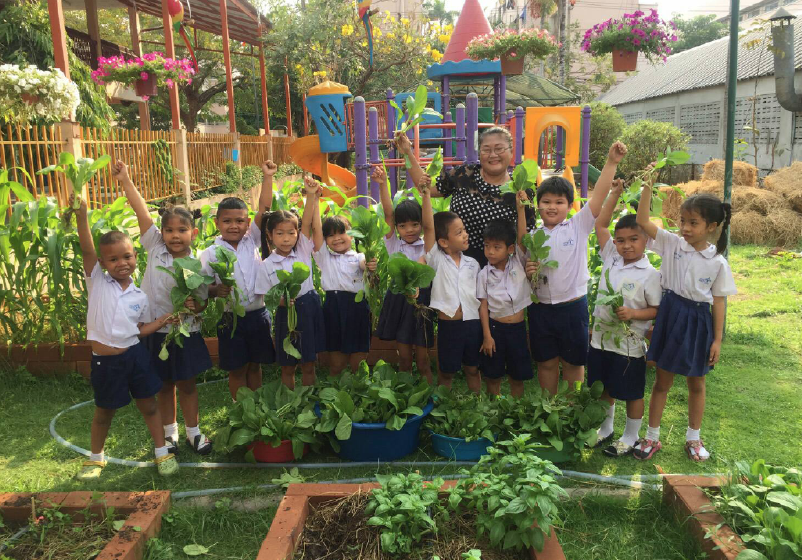
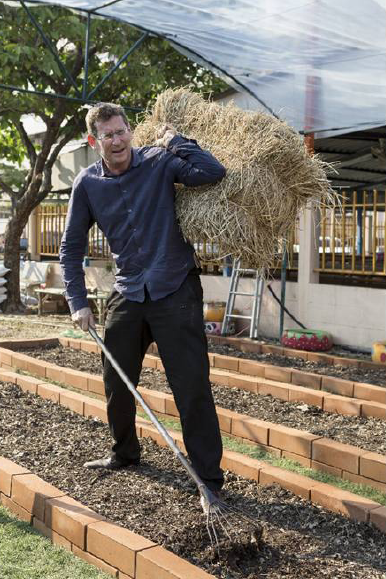
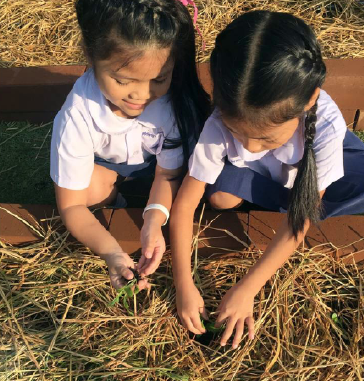
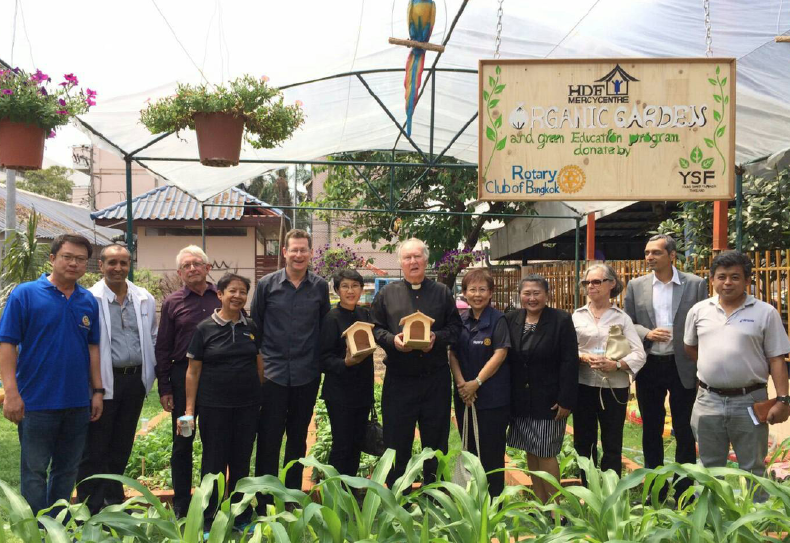
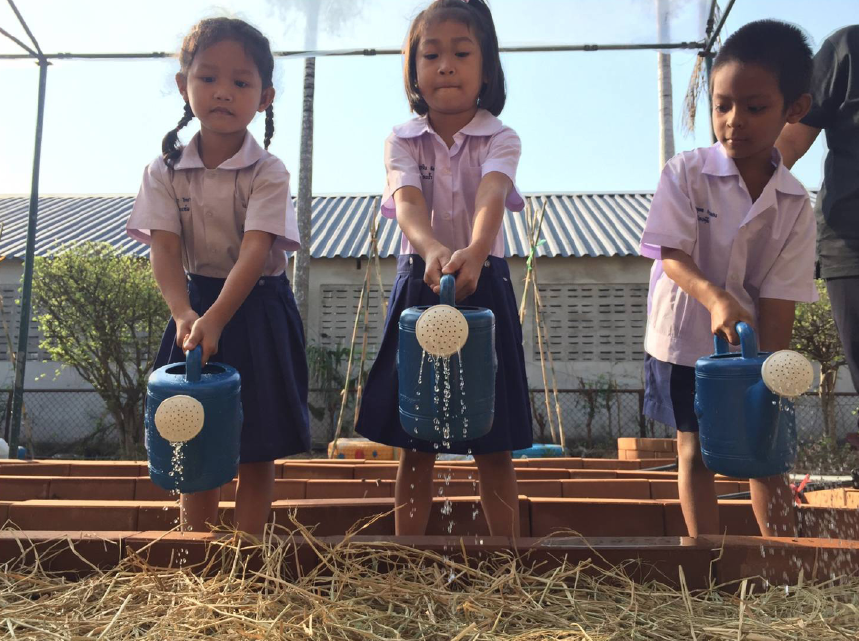
 RSS Feed
RSS Feed
















